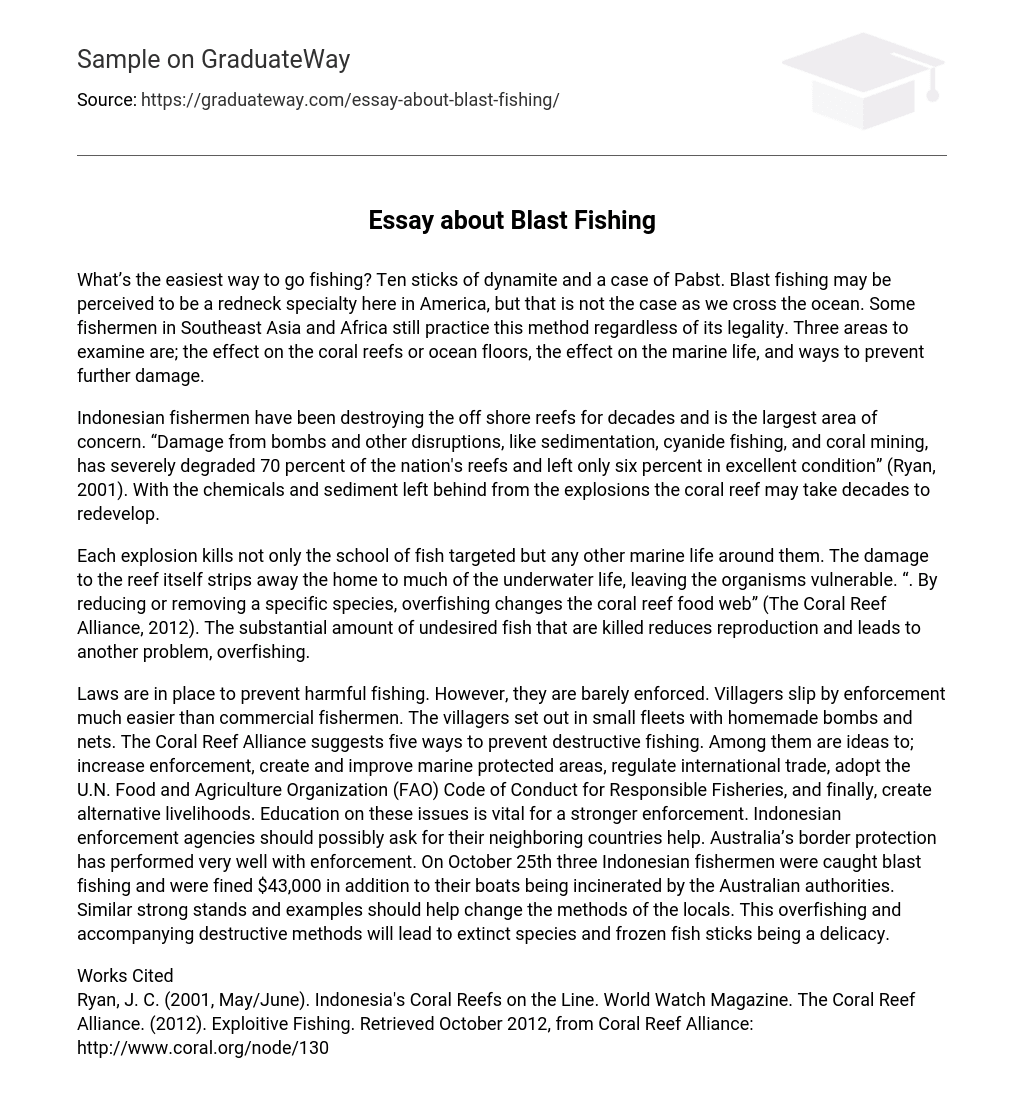The easiest way to go fishing is by using ten sticks of dynamite and a case of Pabst. In America, blast fishing is often associated with rednecks, but it is still practiced in Southeast Asia and Africa, despite its illegality. There are three areas to consider: the impact on coral reefs and ocean floors, its effect on marine life, and possible methods for preventing additional damage.
Indonesian fishermen have been causing long-term damage to the off shore reefs, making it the most concerning area. According to Ryan (2001), bombs and other disturbances, such as sedimentation, cyanide fishing, and coral mining, have greatly deteriorated 70 percent of the country’s reefs, leaving only six percent in excellent condition. The residue and sediment from these explosions may delay the reef’s regeneration for several decades.
The detonation of explosives not only results in the death of the targeted school of fish but also harms other marine creatures in its vicinity. Moreover, it causes significant damage to the reef, which serves as a habitat for numerous underwater organisms, leaving them exposed and defenseless. According to The Coral Reef Alliance (2012), overfishing alters the food web of coral reefs by diminishing or eliminating a particular species. This unintentional killing of undesirable fish additionally hampers their reproduction, adding to the issue of overfishing.
Laws exist to prevent harmful fishing; however, their enforcement is minimal. Villagers have an easier time circumventing enforcement compared to commercial fishermen. The villagers employ homemade bombs and nets as they venture out in small fleets. To address destructive fishing, the Coral Reef Alliance proposes five solutions: increase enforcement, establish and enhance marine protected areas, regulate international trade, adopt the U.N. Food and Agriculture Organization (FAO) Code of Conduct for Responsible Fisheries, and create alternative livelihoods. Education plays a crucial role in strengthening enforcement. Indonesian enforcement agencies can potentially seek assistance from neighboring countries, such as Australia, known for their effective border protection and enforcement efforts. A recent instance on October 25th involved the Australian authorities capturing three Indonesian fishermen engaged in blast fishing, resulting in a $43,000 fine and the incineration of their boats. Such strong actions and exemplars can aid in changing the practices of locals. Failure to address overfishing and its destructive methods will result in the extinction of species and frozen fish sticks becoming a delicacy.
Works Cited
Ryan, J. C. (2001, May/June). Indonesia’s Coral Reefs on the Line. World Watch Magazine. The Coral Reef Alliance. (2012). Exploitive Fishing. Retrieved October 2012, from Coral Reef Alliance: http://www.coral.org/node/130





